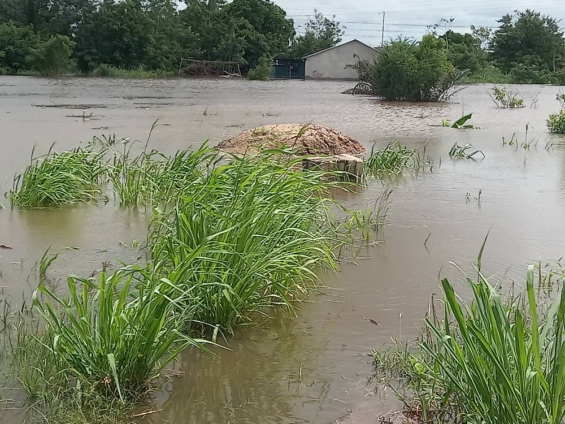Liberia, Mozambique, and Somalia, all African countries are set to gain from a one-year initiative aimed at addressing gaps in Multi-hazard Early Warning Systems to mitigate the impacts of climate hazards.
Bangladesh and Haiti, located in Asia and North America respectively, are two other countries set to benefit from the US$900K grant provided by the Swedish government. The accelerated support granted to World Meteorological Organization (WMO) will help close the Multi-hazard Early Warning System gaps in the five focus countries.
EW4All initiative emphasizes pillars of comprehensive Early Warning Systems
Ensuring the provision of Early Warnings for All (EW4All) necessitates increased and harmonized investments and efforts across the four fundamental components of comprehensive, people-centric Multi-Hazard Early Warning Systems (MHEWS).
These components include disaster risk understanding, detection, observation, monitoring, analysis, and forecasting; dissemination and communication of warnings; and preparedness and response capacities.
Only half of the world (52 percent) is covered by an early warning system. The second pillar of EW4All aims to address crucial deficiencies in the MHEWS value chain, concentrating on providing greater access to high-quality observation data for evaluating and monitoring key hazards.
It also focuses on improving data exchange and accessibility for forecasting and warning systems, along with enhancing forecasting capabilities for all primary hydrometeorological hazards. Additionally, it seeks to implement impact-based forecasts and warnings for priority hazards, and bolster relevant policy frameworks, institutional mechanisms, and stakeholder engagement processes to support MHEWS.
WMO to conduct comprehensive review of pillar 2 for National Roadmap Development
Throughout the project duration, WMO commits to conducting a comprehensive review and documentation of Pillar 2, specifically targeting detection, observation, monitoring, analysis, and forecasting systems. This assessment will encompass identifying gaps, priorities, and requirements, all aimed at contributing to the development of the national roadmap.
The WMO will offer technical advice and enhance national capabilities to implement Pillar 2 of the national roadmap concerning observation, monitoring, analysis, and forecasting, as outlined in the national roadmap.
Collaborating closely with the National Meteorological and Hydrological Services of each target country, WMO will ensure that assessments are conducted, roadmaps are finalized, and actions are taken in priority areas.
Additionally, collaboration with relevant stakeholders, initiatives, and financial entities will be sought to prevent redundancy and ensure efficient resource utilization. The project is scheduled to conclude by December 2024.
Latest Stories
-
Clergymen involved in National Cathedral scandal will never be forgiven – Kofi Bentil
1 minute -
National Cathedral: Prosecute those who spent the money – Kofi Bentil
8 minutes -
Global HR Icons headline Global Conference on Human Resources in Africa (GCHRA 2025)
12 minutes -
Stop the charade, go ahead and prosecute all who misused our money on National Cathedral project – Kofi Bentil
14 minutes -
Pick the leader first, let him choose his team – Kofi Bentil to NPP
21 minutes -
NPP didn’t sideline Kufuor – Joe Wise
23 minutes -
Are the financiers of galamsey the same individuals funding party politics?
55 minutes -
Brothers, is your libido worth your life? Let’s talk Blood Pressure, Herbal Mixtures, and Silent Deaths
2 hours -
Over 5,000 delegates expected at NPP National Conference
4 hours -
NDPC Chairman calls for local economic development at UN HLPF
4 hours -
US tech CEO suspended after Coldplay concert embrace goes viral
6 hours -
Self-acclaimed Ashanti Regional Chairman of Delta Force arrested
6 hours -
Police nab three in Ashanti region for distributing fake insecticides from Nigeria
7 hours -
Detailed constitutional proposals for NPP Delegates Conference today
7 hours -
NPP holds National Delegates Conference Today
7 hours

